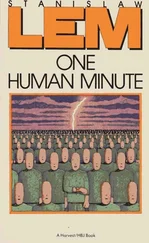Then the girls from Mostar had been brought inside the ruined building during the daylight this afternoon, which surprised her because this was the only time she’d seen the sun since the night she was taken.
Now she and the others, minus Diana, the poor girl who had been shot while trying to flee through the woods, were kept in a large open room with blown-out windows and trash all around. There was a view of a large body of water outside, but a fifteen-meter drop straight down onto broken masonry and concrete, sharp bent rebar and shattered glass meant no one here was going to jump out the window, run to the beach, and swim away. Bombs or tanks had attacked this building, but long ago, as Maja could see full-sized trees growing through the rubble below.
She hadn’t paid attention in history class in school, but of course she knew about the war in Bosnia and Croatia and Kosovo and all those other places in the Balkans. This had to be Croatia, she felt almost certain, and the water in front of her the Adriatic Sea.
When they’d climbed off the bus she’d been surprised to see that the Serbians were gone, and other men were watching over them now. Maja did not know what that meant. The one who ordered the women and girls about spoke English, and they were all darker-complected men. She couldn’t tell if they were Turkish or Albanian or perhaps even Greek, but they seemed more organized and professional than the group of gangsters who held them before.
She had no clue if this was good news or bad.
There was no door to this room, and no furniture, either, so the women and girls sat on the concrete floor. Any possible escape to the stairwell and then freedom was cut off by a group of five men who stood and sat near the open doorway.
She had not been raped in the past two days, and she had not been raped in Bucharest or in Belgrade or in the cellar of the farmhouse. As far as she could tell, she was very much in the minority here in that regard. She didn’t know what this meant, only thought it could be because she kept her head down and avoided any eye contact with anyone, even with the other hostages.
Just as she thought this, the leader of the new set of guards stepped closer to the group, and he spoke in English with an accent Maja, not a native speaker of English, could not identify.
“We heard about the killing the other night. That wasn’t us. That was the Serbs.” He said “Serbs” like it sickened him to do so. “We wish you no harm, but if you try to leave our care, we will be forced to recover you, and then to punish you and everyone else for your misbehavior. Do not try to leave, and you will be treated with respect.”
Respect? Did he really say “respect”? Maja wanted to laugh at this, but she kept her eyes averted and her mouth closed.
The man continued. “I suspect you all have been wondering why you are here and where you are going. I can only tell you this. You arrived early, due to the attack in Bosnia the other day. We were not ready to accept you, so we have put you here. Normally your quarters would be better, but we did the best with the time we had. Right now we are waiting on a boat, and it will arrive tomorrow night, and when it does arrive, you will all be taken to it and moved on to your next destination.”
No one spoke still, but he answered the question everyone had. “You want to know where you are going, yes? I do not know. My men and I are here to keep you safe, and to put each and every last one of you on the boat. That is all we know.”
He paused, as if waiting for questions, but no one dared. Finally he said, “I’ve heard all about this American who tried to rescue you, and then committed another attack on the process in Bosnia.”
Maja didn’t know anything of another attack.
“Just be aware. My men are nothing like the Serbian hoodlums you’ve been surrounded by. My men are trained. Skilled. We will remain vigilant, but we are unafraid of this masked man.
“Now,” he continued, “we will be here for the rest of today and all day tomorrow. I suggest you rest, eat when the food arrives, and relax. I know the Serbians do not allow talking. That is not us. Talk to each other if you wish, but do so softly, or you will all lose privileges.”
The leader turned away and left the room, leaving four more armed men standing around or sitting on broken windowsills.
Maja sat quietly, her long dark hair hanging in her eyes, until a woman scooted over to her and sat close.
“Do you speak Russian?” the woman asked in Russian.
Maja did speak some, but she didn’t feel like talking. “Nyet.”
“English?”
Maja hesitated. She was afraid to speak but was certain this woman had heard her speaking English back in Belgrade. There was no denying it now. “Yes.”
“My name is—”
Maja interrupted. “No. You know the rules. Don’t say your real name.”
“No one can hear us if we speak softly.”
Maja looked at the floor. “I don’t want to know your real name.”
The woman leaned closer to Maja. “Fine. They call me Anke here. Where are you from?”
“Romania,” Maja said.
“I am from Kiev. Ukraine.”
“Okay.”
“I wanted to tell you, because you look older than many of the others.” Maja had just turned twenty-three, and this did put her as one of the older women in the group.
“Tell me what?”
“I have learned that one of us is a spy.”
Now Maja looked up in surprise. “A what ?”
“A Serbian guard told me when we were getting off the bus. He likes me, I guess, and before they left he whispered that I should watch what I say to the others because one of the girls was put in here to inform on the rest of us.”
Maja looked around in the dim. “That . . . that sounds crazy. Nobody is here because they want to be.”
Another woman, Maja knew her to be Moldovan, leaned into the conversation.
“Maybe it’s crazy,” the Moldovan said, looking at Maja. “Or maybe it’s you.” Louder she said, “Maybe you are the informant.”
“I . . . I am not an informant.”
Others tucked closer on the floor, listening in as the Moldovan girl continued. “I have been watching you. I have been raped twice. Once in Belgrade, and once last night in the forest. Most of the other girls have been raped, as well.”
All of the girls within earshot nodded.
“Others have been beaten. But you? I haven’t seen them lay a finger on you.”
Another young woman, also one of the Ukrainians, said, “I saw her touched. In the woods the other night. One of the men selected her, dragged her a few feet. But then he put her back in line when the other man yelled at him.” She eyed Maja now. “It was like you were being protected for some reason. Why?”
“I . . . I don’t know. I swear I don’t understand what is happen—”
The first woman hissed at her. “Liar. You are working with them.”
She tried to protest, but the rest of the group moved away from her, leaving her alone on the floor in the middle of the room.
With everything that had happened so far, Maja didn’t think she had any more tears left in her, but she began to cry again.
• • •
Talyssa Corbu and I find ourselves sitting a couple blocks away from the main police station in Dubrovnik, Croatia, on a hilly residential side street off Ante Starcevica. It’s pouring rain; Talyssa has her coat on and an umbrella in her hand, but she’s not worried about the weather at present. Instead she’s trying to psych herself up to walk straight into the police station and reveal to some possibly very bad people that she is here to unmask their very bad actions.
I sure as shit wouldn’t want to do it, so I can understand her reluctance.
Читать дальше












